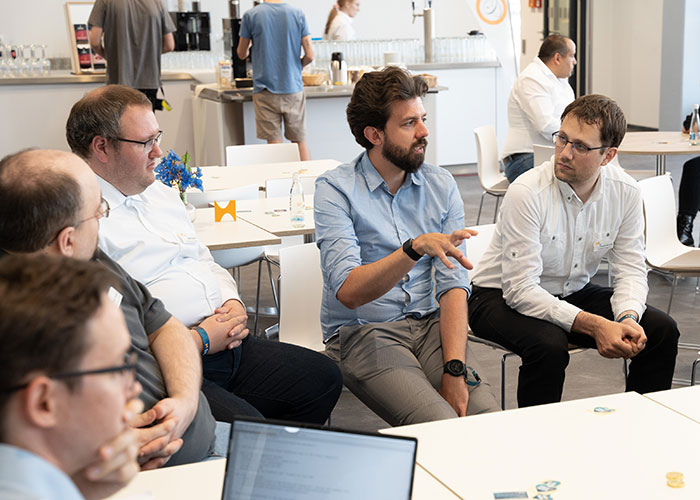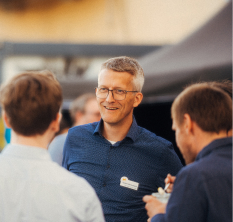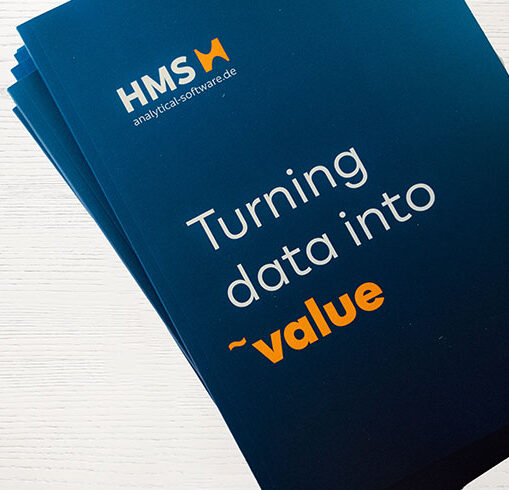
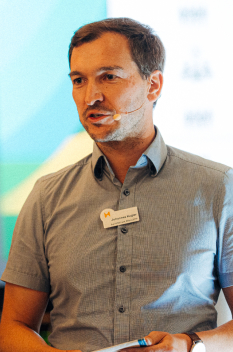
Join us and become a true all-rounder in cloud and on-premise!
The competence center IT Systems focuses on relevant topics needed for the development and operation of both on-premise and cloud applications and infrastructures. Therefore, we are not only certified Git wizards, we also know our way around the depths of the Kubernetes ecosystem. We also disseminate the necessary skills and tools for using cloud applications, to ensure sustainable success for our employees with regard to their projects. We spread internal replication of our colleagues’ expertise and skill sets and are at the forefront of current IT trends in terms of knowledge. Employees who share the enthusiasm of deploying applications on Kubernetes clusters are exactly what we are looking for.
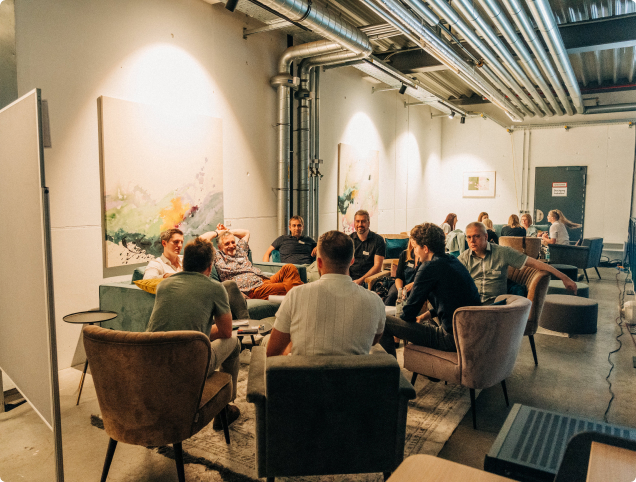
The interaction between colleagues is what appeals to me most, as well as the general dynamic in the competence center. Kubernetes and cloud systems are exciting topics that regularly draw me into knowledge circles, and I enjoy sharing my knowledge about them. On top of that is the Linux Café also an exciting space to discuss topics in a relaxed atmosphere.
The competence center is an optimal place to receive targeted and efficient training. The interactive nature of the knowledge circle formats allows people to ask specific questions to advance their client projects. In particular, the events at Docker and Kubernetes laid the foundation for expert roles in various customer projects for me.
I enjoy networking, since it allows me to discuss promising topics and benefit from the expertise of my colleagues. This helps me enormously in providing high quality advice to our customers.
Kubernetes and Cloud are trend-setting topics in my opinion. More and more customers are converting to the cloud and want to be supported with reliable and distributed systems.
This depends on the held event and the project opportunities. In general, however, I think that knowledge, which has been imparted in practical or even interactive workshops, can be applied very well for customer projects. Each employee also gets the chance to ask project-specific questions.



During this event, three colleagues first introduced the principles of SRE after providing a handbook. Adhering to the saying “hope is not a strategy”, topics and metrics were prepared that are relevant for management processes within SRE projects. Finally, some Google application examples were presented. In this knowledge circle, we learned how far-reaching the topic of SRE is and, above all, how many other areas of operations and application development it extends into (e.g., container orchestration, automation, cloud architectures).
In this knowledge circle, a Proof of Concept from a customer project was presented. The goal of the PoC was to provide an API that starts model calculations via user-defined parameter grids, manages status information, and merges partial results. Technically, the solution is based on the Red Hat orchestration platform OpenShift with additional components such as sqlite, AWS S3 buckets and Hive tables as a persistence layer. Thanks to the presentation, we have once again seen how powerful and performant containerized applications can be and what new possibilities arise from orchestration platforms in terms of scalability and resilience.
With the help of practical examples from the customer project, the advantages of working with Pull Requests were presented. The use of PRs not only ensures a minimum standard of code quality through the dual control principle, but also promotes the principle of collective code ownership. Of course, this workflow only works with Git, which, despite its superficial complexity compared to other version control systems, makes efficient teamwork possible in the first place. Attendees were invited to push and review code themselves during the hands-on session. This has helped to sharpen the focus on code smells.
